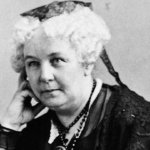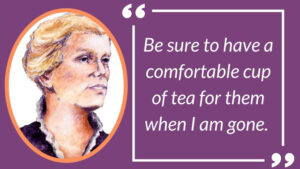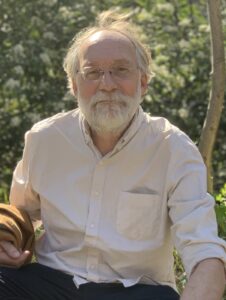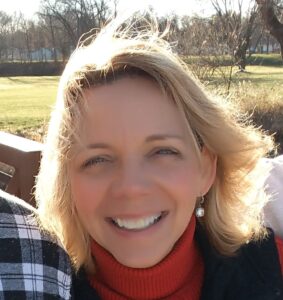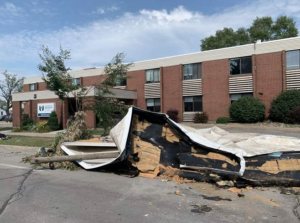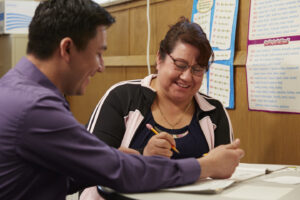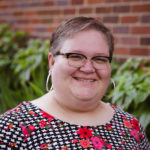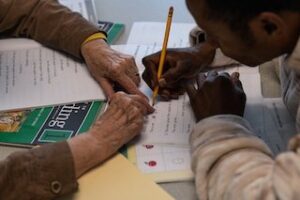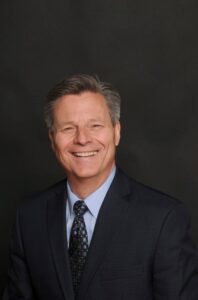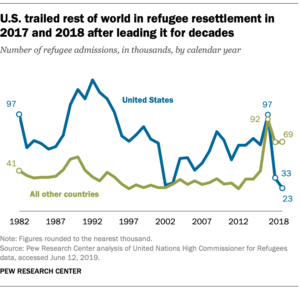This month’s volunteer spotlight is on AmeriCorps members, who have been an integral part of the Catherine McAuley Center’s expanded capacity in recent years. AmeriCorps is a voluntary civil service program under the Corporation for National and Community Service in which members serve limited terms and receive a living stipend. Currently, CMC has seven full time AmeriCorps members serving through the RefugeeRISE and VISTA programs, who help to build and refine processes, allowing us to better serve the community. In honor of National AmeriCorps Week (March 7-13), we asked a few questions of members Evelyn Berryhill, Kelly Johnson and Walt Wagner-Hecht about their experience of serving at CMC.
What is your role, and what do you do?
Kelly: My role is as the Donations and Volunteer Coordinator. My main goals are to properly set an inventory and organizational system for in-kind donations and help establish a group of volunteers for the Refugee & Immigrant Services department.
Walt: I am an Educational Services VISTA. I help expand our curriculum beyond one-on-one tutoring and connect students to tutors and resources.
Evelyn: I’m the Distance Learning Coach for Education Services. My primary focus is supporting the online tutoring program that was implemented in mid-2020. I help tutors learn to use Zoom and similar platforms for tutoring, connect them with online students, and assist tutors and students in solving online learning issues they may encounter.
What made you decide to participate in an AmeriCorps term of service?
Kelly: With the outbreak of COVID-19, I decided to put my graduate studies on hold for a year and was looking for an opportunity to continue growing my experience in the public/nonprofit sector. I saw the AmeriCorps place at CMC and jumped at the chance!
Walt: I decided to participate in this AmeriCorps term because it was a way to help the community during the pandemic. I had graduated college but was mostly just sitting at home trying to find jobs that I could do, were helpful, and didn’t require me moving during such a strange time.
What does a typical day in your role look like?
Kelly: Usually in the morning, I begin by trying to check messages (I also have receptionist duties). Then depending on what is happening I will help get incoming volunteers into their roles. The rest of the day can be a mix of getting paperwork or appointments sorted for incoming clients or working on various other projects such as helping our after-school program with middle school and high school students.
Walt: I have had very few typical days during my service so far. The constantly changing status of the pandemic as well as a derecho during my second week have meant that I have shifted between working at the building and from home often, and various projects have stopped and started up again. I am on the computer quite a bit, working on spreadsheets, lesson plans, and Zoom/Google Meet meetings.
Evelyn: On any given day, I teach English online and work on curriculum projects (AKA, lesson planning). I also connect students with tutors for online classes, and I field a lot of questions from tutors about the best ways to tutor online. This happens either by email or on Zoom during our office hours. Additionally, I keep track of how often students and tutors are studying together online.
What have you gained so far from this experience?
Kelly: I have gained a wealth of experience in understanding more about the journey a refugee takes to come to the US, and that will help me in my future goals of working in international development. Of course, I would be remiss if I didn’t include the wonderful friendships and opportunities to connect with a wide variety of people!
Walt: So far during this experience I have gained a greater awareness of the diversity of people in our community, a better understanding of how education can work, and experience working with a team.
Evelyn: I’ve had the opportunity to learn more about the education field than I ever expected to, by teaching and tutoring, and learning how curriculum is developed. I’ve had hands-on experience managing and creating education programs and gained a greater sense of community in Cedar Rapids by getting to know staff members at CMC as well as the students and other volunteers.
What are you planning to do after you finish your AmeriCorps service – any long-term goals?
Kelly: Hopefully, I will begin my graduate studies and receive a Master of Public Administration degree. I love to travel and study languages, so my long-term goals are to grow my knowledge of public policy and public management so that I can work in international development, ideally abroad and possibly with refugees.
Walt: It is hard to tell what comes next since I don’t know when different things will be possible again. I may go to graduate school, do another year of service, or find another job. My long-term goals are to help create sustainable and welcoming communities and reform the systems that make that difficult currently.
Evelyn: I plan to earn a graduate degree in a field that will help me to improve other people’s lives. There are so many people, including immigrants, refugees, and linguistically and culturally diverse individuals, who are structurally disadvantaged in U.S. society by no fault of their own. I want to work towards dismantling these unjust structures while also helping people gain the tools and opportunities to do this work themselves. I believe education (for myself, as well as others) is one of the best ways to do so.
CMC is seeking qualified and passionate applicants for upcoming summer and fall (year-long) opportunities. Visit our careers page at www.cmc-cr.org/contact/careers/ or email volunteer@cmc-cr.org to learn more!


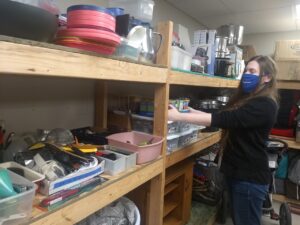
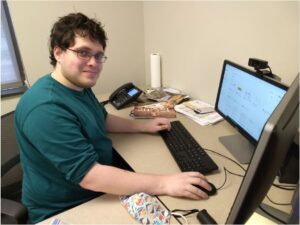
 For centuries, drinking tea has played a significant role in the lives of women around the world. As we celebrate Women’s History month alongside the
For centuries, drinking tea has played a significant role in the lives of women around the world. As we celebrate Women’s History month alongside the 

